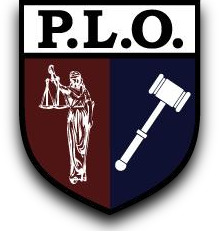There are generally four (4) phases to an DUI/OWI stop and arrest, as listed below:
Phase 1: The Stop
An officer doesn't always stop people with just and legal cause. We have gotten our client's cases dismissed for being
stopped illegally, such as when an officer pulled one of our clients over for making too many right hand turns, "because it was
suspicious", or when a client was illegally stopped because an anonymous person made a call but the officer failed to first
verify independently that there was a
violation, or when our client was pulled over illegally by the police for flashing his high-beam lights at an on-coming car.
Phase 2: Personal Contact/Reasonable Suspicion
Just because you are stopped doesn't mean the officer can get you out of your vehicle to test you to see if you are drunk.
Remember, the officer never stops you for Drunk Driving, you are stopped for violating the rules of the road, such as for
speeding, or failing to come to a complete stop at a stop sign, etc. To get you out of the vehicle for field sobriety testing the
officer must establish "Reasonable Suspicion" that you are Intoxicated, not simply that you've been drinking. This is done by
establishing, in the totality of the circumstances, that enough indicators are present to form such a belief. For example, officers
look for red/glossy eyes, slurred speech, fumbling with your wallet/purse, having the odor of an intoxicant emanating from you,
the admission of recently having consumed an intoxicant. Keep in mind that one indicator by itself does not necessarily amount
to "Reasonable Suspicion." Notes, it is not illegal to drink and then drive, you just can't drive while intoxicated or with a
prohibited level of B.A.C. And, the odor of alcohol is not by itself an indicator of being intoxicated, just simply that you may
have drank or had a drink spilled on you. We've been able to get all of the testing and results suppressed and cases
completely dismissed because there was no reasonable suspicion to believe our client was intoxicated; thus, no legal cause
existed for the officer to begin an investigation into a possible OWI/BAC violation.
Phase 3: Pre-Arrest/Field Sobriety Testing (FST)
Just because the officer has enough to get you out of the car for FSTs does not mean he has enough to make an arrest,
which is why they have you perform tests, such as the Horizontal Gaze Nystagmus (HGN) test, Walk-And-Turn test and the
One-Leg-Stand. Officers rarely ever perform the HGN test correctly and therefore it they don't often times know what they saw
and aren't able reliably predict levels of potential intoxication. So, HGN testing is often times not predictive and therefore not
able to be utilized with any degree of accuracy when determining if a suspect is intoxicated. Officers most often times
misinterpret the results of the Walk-And-Turn test too because they either have the suspect start on the incorrect foot, which
causes them to be on the wrong foot at the ninth step and therefore unable to correctly make the pivot turn. They also, from
time to time, count stepping "off the line" each time to establish enough clues to indicate intoxication, which is incorrect.
Whether you step off the line once or five times it is technically supposed to count as "one" indicator, not five indicators, etc.
As for the One-Leg-Stand, an officer will attempted, often times, to get you to stand on a rigid leg, which creates a higher (top
end weighted) pivot point, which is more unstable and will often times lead to loss of balance. The key to this test is to slightly
bend the leg you stand on and lean slightly backward, which creates a more sturdy base for balancing. Failure by the officer to
properly administer these tests can lead to suppression of all evidence of intoxication and the dismissal of your case. We have
gotten our clients evidence suppressed and cases dismissed at this phase for such violation.
Phase 4: Post Arrest/Implied Consent
If you are arrested and "Probable Cause" is established in the "totality of the circumstances" after performing the FSTs, it's not
over yet. Following the arrest but prior to formal breath or blood testing, the officer is required by law to read you the Informing
the Accused. Failure by the officer to inform you of those rights may lead to suppression of evidence of intoxication and a
case being dismissed.
Also, if you submit to an officer's request for formal testing, you may request secondary testing. The officer will provide you
with secondary testing at no cost, or permit you an alternative test of your choice at your cost. If you request secondary testing
and the officer fails to provide you this opportunity, then the remedy is that evidence is suppressed, including his primary test
that you previously submitted to, and your case may also be dismissed. We have been successful at getting our client's
evidence suppressed and cases completely dismissed for these such violations, even after juries have found our clients to be
guilty at trial.
Remember, a mistake by an officer at any one of these phases may result in you case being completely dismissed!!







